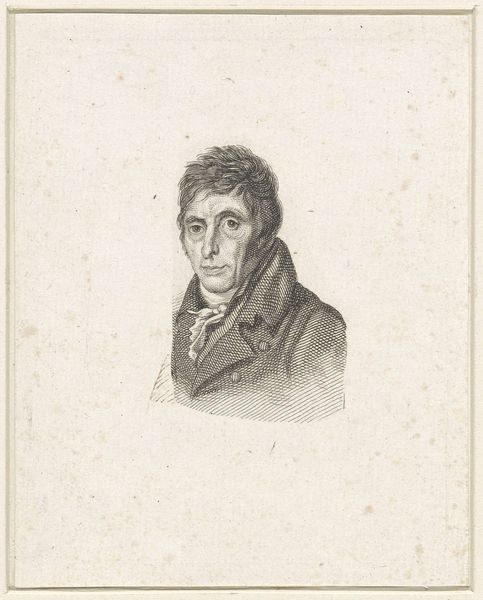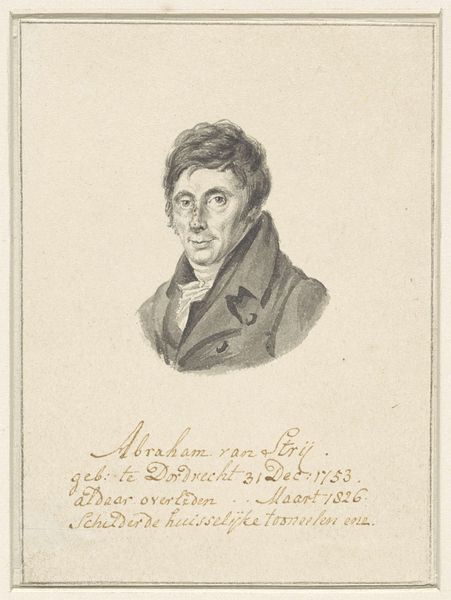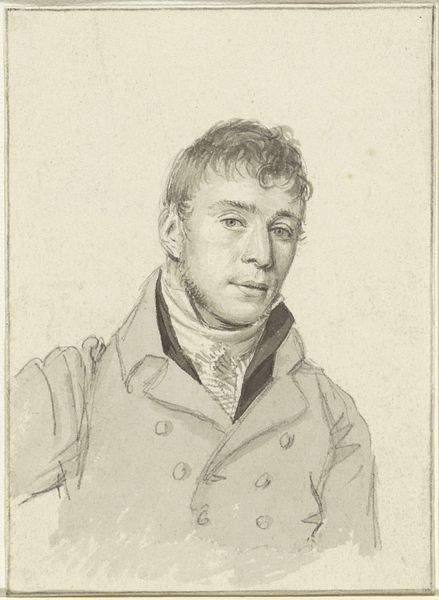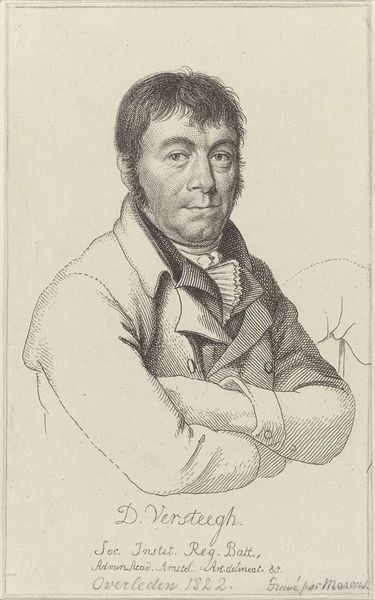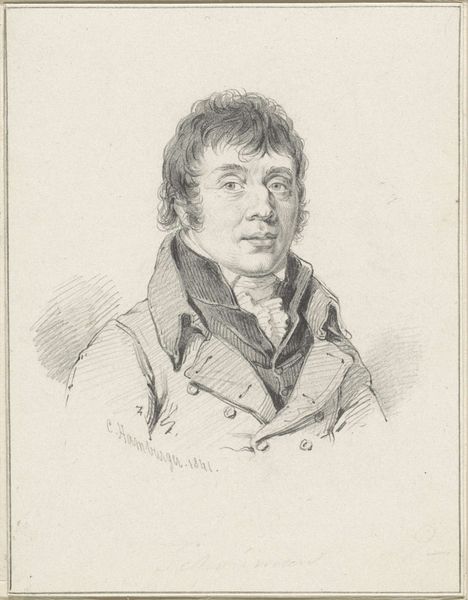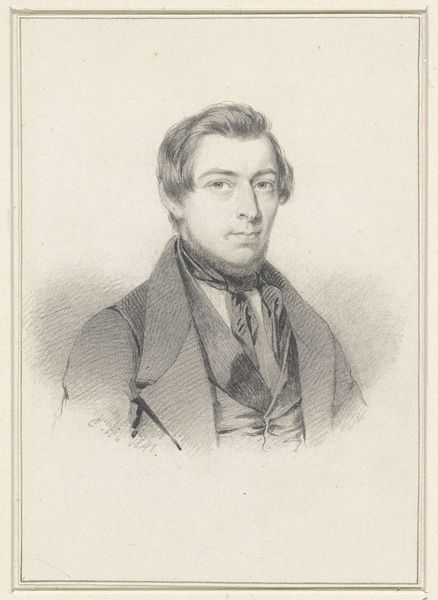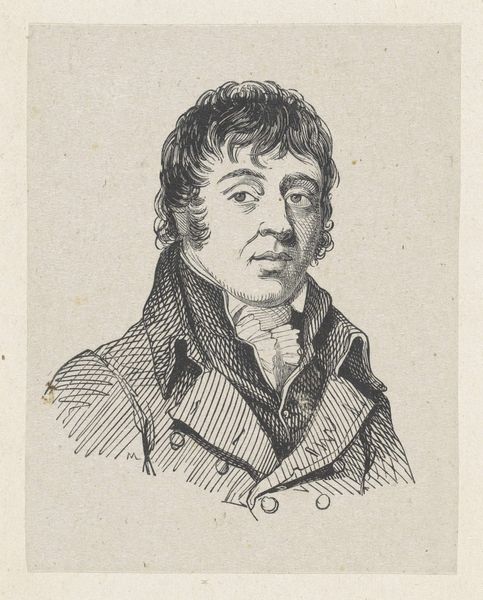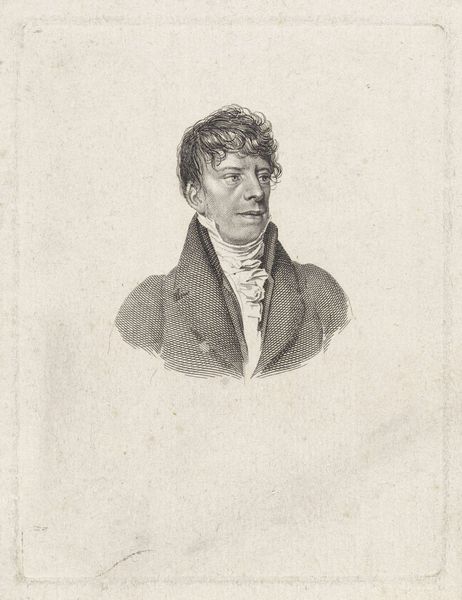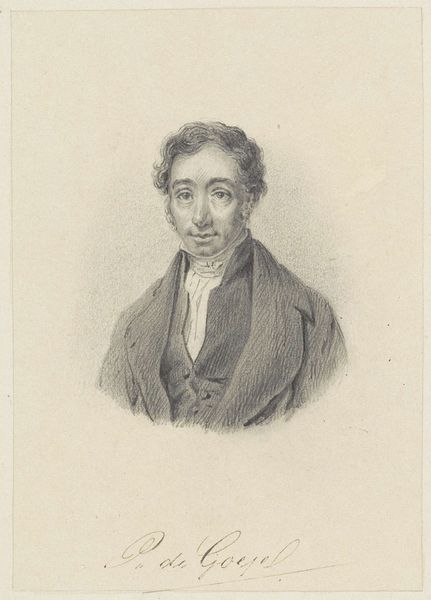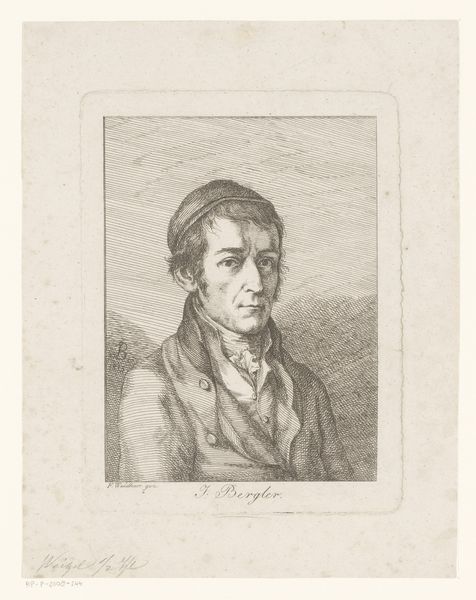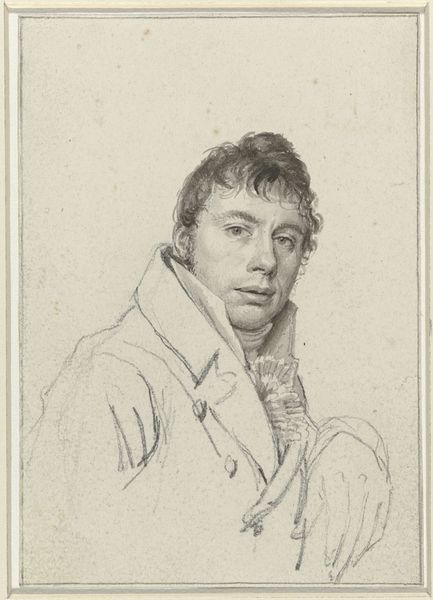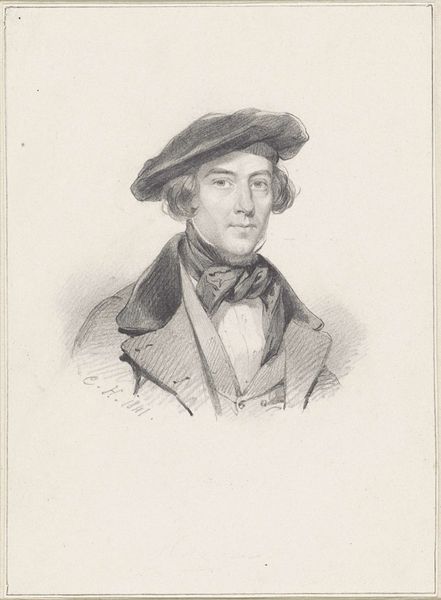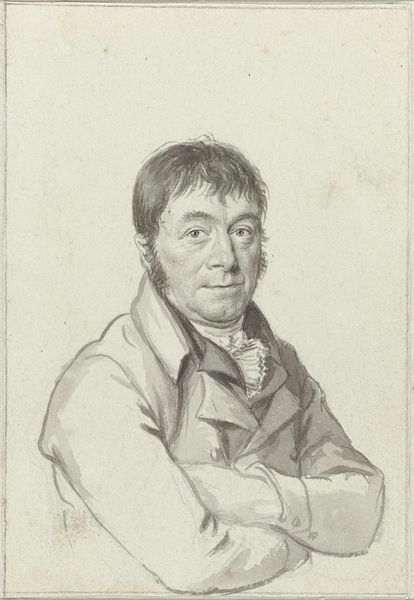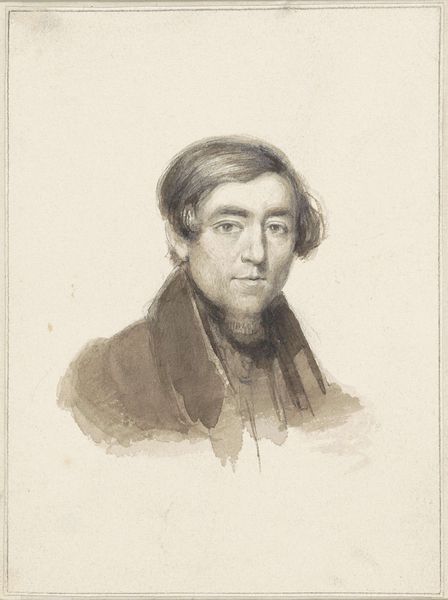
watercolor, ink
#
portrait
#
watercolor
#
ink
#
realism
Dimensions: height 75 mm, width 66 mm
Copyright: Rijks Museum: Open Domain
George Adam Schmidt rendered this watercolor portrait of Leendert de Koningh sometime in the first half of the 19th century. It captures a moment in the Netherlands as artistic and social norms were shifting. The sitter's attire and the portrait's intimate scale suggest a rising middle class, eager to participate in the cultural sphere through portraiture, historically the domain of the aristocracy. Schmidt, signing his name prominently, and adding "ad vivum", meaning from life, asserts his role as a skilled professional, responding to the market demand for accessible art. The use of watercolor, rather than oil, mirrors the growing preference for more immediate and affordable artistic techniques. To fully grasp the social dynamics influencing this work, one might explore archival records detailing artistic commissions in the Netherlands during this period. Research into the emerging art market and the changing roles of artists would further illuminate the painting’s significance. Art, you see, is a product of its time, reflecting society's evolving values and the shifting power structures within it.
Comments
No comments
Be the first to comment and join the conversation on the ultimate creative platform.
